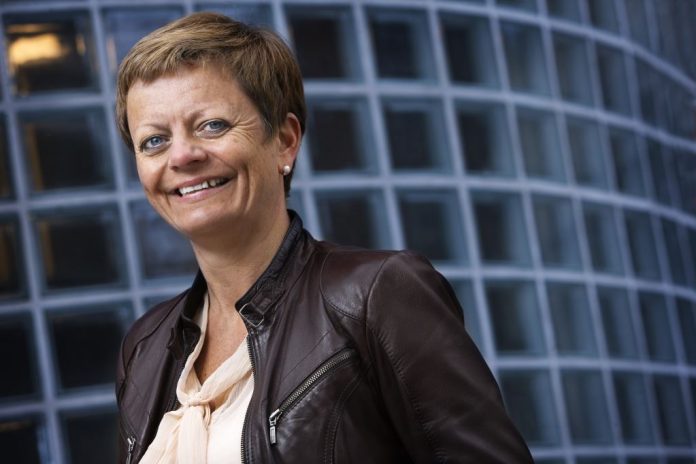Anne Kjersti Fahlvik, Executive Director of Innovation at the Research Council of Norway talks to Editor Laura Evans about the importance of supporting young researchers in Norway and collaborations between universities and industry…
High-quality research in Norway is viewed as an integral way to meet global challenges and transform the business sector. With a strong research tradition in areas such as the marine and maritime sectors, petroleum and energy research in general, the government has given Norwegian Research Policy high priority.
The Research Council of Norway (RCN) is a government agency responsible for awarding grants for research, as well as promoting research and science. They work towards adding value to the research and innovation system and through funding programmes and projects, the Council seeks to promote high calibre research and innovation potential.
In order to conduct world-class research, you need to attract and recruit the best talent. Through a new policy, the RCN are doing just that. They also aim to increase the interaction between academia and working life in order to help strengthen career paths throughout the country. Here, Editor Laura Evans speaks to Executive Director of Innovation, Anne Kjersti Fahlvik from the Research Council of Norway to find out more about how the organisation is supporting young researchers and helping to develop their talent.
The StudENT 2016 programme being run by the Council aims to encourage young student entrepreneurs and support collaborations between universities and industry. Fahlvik starts by explaining the challenges for young researchers in Norway starting their research careers.
Encouraging the next generation of scientists and researchers in Norway is very important, but there are different challenges when you are talking about the business sector and universities, or the higher education sector,” she says.
“The challenge we have seen for young talent is gaining permanent positions within universities. The young research talent scheme we have aims to boost talent earlier in their career so they can start building up their own research group and get faster career development. This then enables them to hire other young talent and build a strong team.”
The RCN support young researchers in a number of different ways through their funding projects and programmes. A research career is one of many potential career paths for talented students in Norway and in order for promising students to launch their research education early, the Council works to support measures that connect students with research activities and institutions.
“Over the last period, we have focused on a few projects that also look at the talent heading up the project, rather than the project itself,” Fahlvik explains.
“We have special schemes now for young research talent, for industrial PhD’s and for student entrepreneurs, specifically aimed at promoting young researchers’ careers, also in the business sector.
“What we aim to do now in these calls is look for talented young researchers and entrepreneurs. Traditionally, you apply for a project, we evaluate the science quality, the impact value, the innovation potential and not so much look at the young participants in the project. But, in these new schemes we are funding, that is what we are doing, putting the young researchers at the front.”
Two of the schemes in particular, are looking at closing the gap between academia and industry. The industrial PhD scheme aims to invite companies that do not already collaborate with universities, while StudENT asks that the universities which the students graduated from support them during their first year in business with test facilities and mentoring.
“If you look at the numbers in the innovation score index and look at the numbers regarding the Norwegian research and innovation landscape, you can see that we have very good collaboration and effective knowledge transfer. This is within sectors such as geosciences and the oil and gas industry, everything related to marine disciplines and fish farming,” says Fahlvik. “However, we don’t have the same type of collaboration for public sector topics.”
Fahlvik goes on to explain: “The industrial PhD scheme has been very successful – so much so, we have had to increase the budget, due to the interest rising. What has changed during the last year or so is that it is seen as a good tool for companies to develop their own employees and develop connections with universities.”
In order to ensure the success of projects such as StudENT and the Industrial PhD project, funding is integral. Investment is a key part of research and innovation, as Fahlvik agrees.
“Investment is very important. What we do from at the RCN is to fund a third of the cost of the project and the companies or early stage investors carry the remaining cost.
“With the student entrepreneurship scheme, we think that by putting quite a significant amount of money in the hands of the project, recently graduated Master students can use that to test production or to start up with the first customers or refine their ideas together with a research institute.
“We look for entrepreneurs who try to think totally outside the box. They may not have all the experience and competence, but we see that as a good thing. We let them play around and take risks but we see that they grow enormously and I think it’s the young spirit combined with the out of the box thinking and the talent they carry,” she says.
The key aims of the StudENT project is to help students create their own business and to encourage a culture of entrepreneurship in academia.
“This is why we are requiring that universities or university colleges apply on behalf of their students, and we have asked that they aid the students with a mentor, test facilities and counselling,” says Fahlvik. “When they commit to this kind of support, our hope is that it will affect their organisations and encourage more entrepreneurship.
“This is an advantage both to academia and the young entrepreneurs. With a research-based idea, you need to keep developing your product in parallel with customer testing: to do R&D at the same time as you check what the market wants. Good relations are vital in order to make this cycle work.”
Anne Kjersti Fahlvik
Executive Director of Innovation
Research Council of Norway
www.rcn.no











